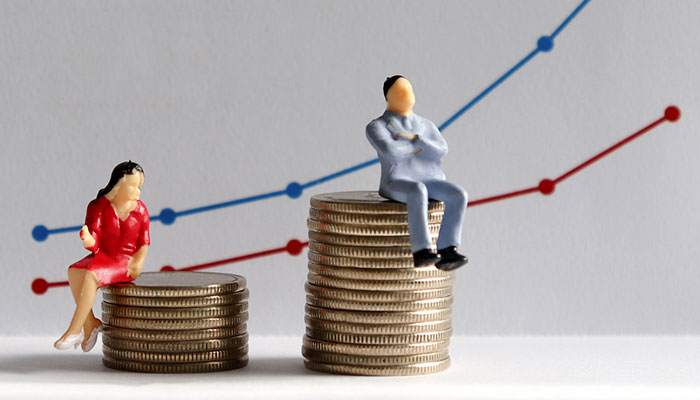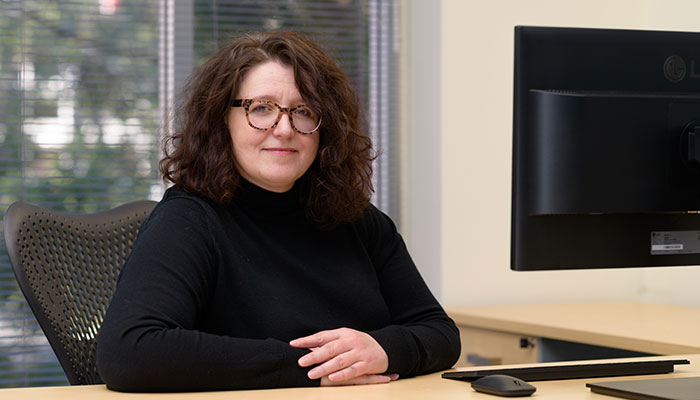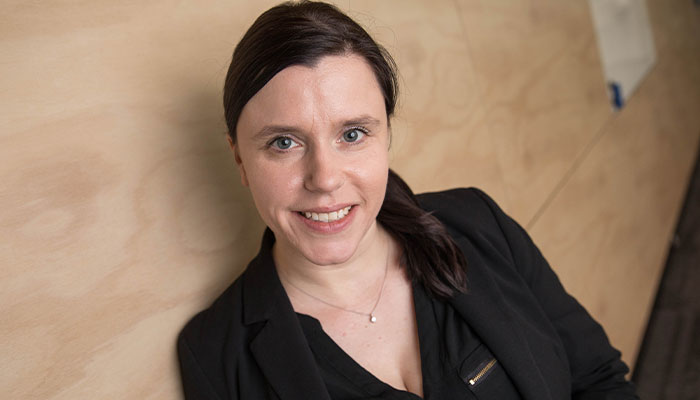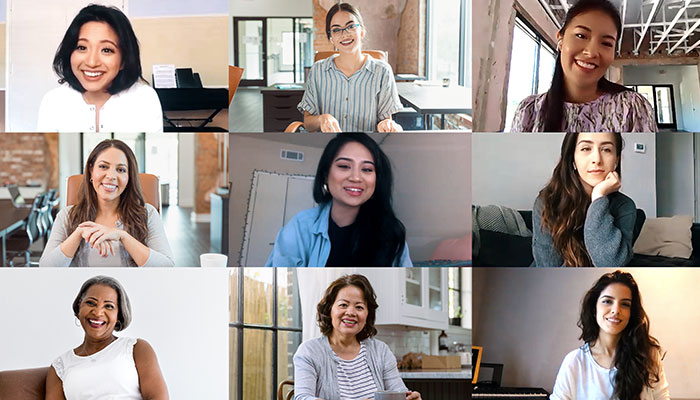Australia is currently number 50 on the list of 156 nations ranked by the World Economic Forum's 2021 Gender Gap Index. That puts us behind not only many other OECD countries but also many developing nations including Namibia, Rwanda, Mozambique, El Salvador and the Philippines.

Why? Australian women are paid 15 per cent less than their male counterparts, says Pullen - who is calling for organisations to urgently address this fixable inequality.
As Women's Agenda highlighted, compared to 2006 levels when Australia was 15th on the index, in 2021 Australia had fallen from 12 to 70 in economic participation and opportunity, from 57 to 99 in health and survival, and from 32 to 54 in political empowerment. However, it was still first on the index for educational attainment – pointing to a spectacular disconnect between women's educational opportunities and what happens when they enter the workforce.
"We have been talking about achieving better working conditions for women for decades and there's a lot of gender fatigue around, where people are shutting off because they assume that workplaces are fairer for women," says Professor of Gender, Work and Organisation at Macquarie Business School Alison Pullen.

Pandemic-fuelled inequity: workforce gender equality has been hit by women who are burned out from sholdering the care of schooling kids at home, the care of elderly relatives and the service industry crisis, says Prof Alison Pullen (pictured).
"But in relation to the history of International Women's Day, there were three main issues for women – one, the right to vote, which we have in Australia; the second, equal pay, which we don't have; and third is better working conditions – and I argue that there is severe sexism and sexist racism in Australian institutions, which means women are still treated as minorities, within the context from universities to the corporate sector and beyond."
We need a radically different focus, argues Pullen, "because women can't keep doing the fighting. The institutions we are part of need to want this, because it is better for everybody, not just for women."
Sustainable change means women caring and collaborating together, to ensure the fight is not won unless the most vulnerable members of our community are protected.
Gender inequality has reached a critical junction due to the pandemic, which has seen women burn out from shouldering the burden of care of children schooling at home, of their communities, and of elderly relatives. This work has gone unacknowledged by government and big employers, say Pullen and Professor Martina Linnenluecke, Head of Macquarie's Centre for Corporate Sustainability and Environmental Finance. Additionally, women have left the workforce in droves because of precarious jobs they were in such as service work done by women, and precarious work situations where trying to 'do it all' was no longer a feasible option.
"It has been a really worrying trend, and a huge issue, that the pandemic has not only created significant employment risks for women who dominate the workforce in industries hit hardest by COVID, but has also encouraged a lot of women to take voluntary redundancy," says Linnenluecke.
The task to create genuine gender equality in the workplace is huge – but here are six ways Australia can make a start.
Fix the gender pay gap
Australian women are paid 15 per cent less than their male counterparts.
"You can't put women into jobs if there is a pay gap, because then we know our work is devalued, because we don't have as much money in our pockets at the end of the week, and over a career woman are heavily hit in retirement," says Pullen.
Consign lean-in feminism to the dustbin
Lean-in feminism – the idea, says Pullen, that "cherries were there for picking and as long as we worked hard enough, we were smart enough and we deserved the job, of course we would break through structural barriers" – only benefits the most elite women who have the resources to be able to advance their careers.
Often such women are so busy fighting for their own space and rights and recognition, says Pullen, that they don't have time to build a community of support for other women.
"Sustainable change means women caring and collaborating together, to ensure the fight is not won unless the most vulnerable members of our community are protected," Pullen says.
Consider quotas
Linnenluecke, who grew up in Germany, says she can personally see the contrast between Australia and European countries (which occupied 10 of the top 15 positions on the Gender Gap Index). "It's still not perfect [in Europe], but there is definitely much more of a push to look into all areas around recruitment, promotion, retention of women, as well as dismantling barriers, to ensure there is representation and that pathways are available to women.

Incorrectly labelled: Too often, says Professor Martina Linnenluecke (pictured), women who raise issues or advocate for gender equality in the workplace are described as 'trouble-makers'.
"Some of this has been achieved through quotas."
Says Pullen: "I was always against quotas, but when Australia is doing so badly in terms of gender equality then you need to address male-dominated professions, as well as issues of systemic masculinity that prevent women from even accessing some professions."
However, quotas won't work properly without a genuinely diverse workplace culture. "We can have institutions that say have a quota for racially and culturally diverse women, but unless the culture is such that women actually want to work there, and thrive there, then these women won't be contributing fully and will eventually leave much faster than others," Pullen says.
Building resilience and networks
Because women don't have the same bargaining power as men, says Linnenluecke, they can get trapped in "unfortunate" working circumstances.
"My work focuses a lot on resilience, and research shows that men are more resilient because they have been much more prominent in the workforce, they have much better informal networks, so if a man is faced with the challenge of 'I might lose my job, I need to transition elsewhere', there is often a network that can be tapped into.
"Many women have a secondary focus on carer and family responsibilities, which takes away from network building, so it is much harder for them to reach out, and to be flexible. Anyone who is shouldering substantial commitments and challenges outside of work can often not just uproot everything to fully focus on pursuing work opportunities.
"What makes people more resilient are networks, opportunities, a strong financial situation, mobility and flexibility – and if you take away or frustrate those factors, it means you have a person who is likely to be less resilient."
Linnenluecke says informal and biased job hire channels can be challenged by bringing transparency to decision making, "so that opportunities are announced to everyone and not just select circles".
Create safe workplaces
Pullen argues that when women don't feel comfortable at work because the culture is alienating, they won't be contributing fully to the organisation and thus it makes business sense to create workplaces where they feel safe and able to perform and grow to their full potential.

More than words: Diversity policies and training often do not go far enough, says Pullen - culture change is what's needed for women to feel genuinely valued in the workplace.
"This means providing not just diversity policy and training, because a lot of organisations have that in place now; it is providing cultures that genuinely foster diversity.
"If you feel you are working in an environment and you are not given equal opportunity to contribute to your workplace, then women disengage and withdraw, and that presents opportunities for institutions to not value and recognise the work that women do."
No more 'complaining'
Pullen says rather than being bystanders, everyone needs to be calling out discrimination when they see it. But for that to happen, says Linnenluecke, organisations need to give women positive channels through which to raise issues.
"As a woman if you want to bring about change, the channels that are available are very narrow. If you want to speak up and say something, you are often forced into making complaints which requires resilience, and women are so easily labelled as 'complainers' and 'trouble makers' which are often not welcome."
Rather, Linnenluecke says women who want to raise gender issues should have access to channels that positively promote and reinforce them. This can only be done if organisations are willing to deeply invest in staff – and not just in terms of gender equity, but in terms of all aspects of equity, diversity and inclusion.
"Sustainable change needs to be embedded throughout organisations from designing and building equitable workplaces to ensuring that women are valued."
Alison Pullen is Professor of Gender, Work and Organization in the Department of Management and is joint Editor-in-Chief of Gender, Work and Organization.
Professor Martina Linnenluecke leads the Centre of Corporate Sustainability and Environmental Finance and is the author of the book The Climate Resilient Organisation.






